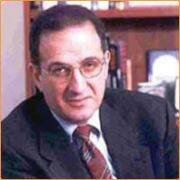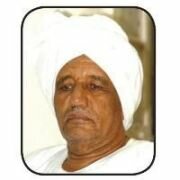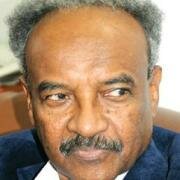The first VP and PM has declared the appointment of the Chairman and Deputy Chairman of the new Financial Markets Authority (FMA)
.Both persons are fairly qualified people for the task. I do not know the Chairman but I know the Deputy Dr. Hamid El Amin who was for many years a member of the Board of Khartoum Stock Exchange.
When the idea of financial markets was adopted in August 1992 after the introduction of the liberalization policies it was meant to encourage domestic as well foreign saving to contribute to the development of the economy through this financial institution. Instead of only starting with the securities market it was decided to start with the usual three main markets. Securities, Foreign Exchange and Commodity Exchange. It was called the Sudan Capital Market (SCM).This was on the advice of a Nigerian expert who used to work for COMESA. Another British expert was also called to provide advice on the foreign exchange market. In the end although convinced that we should start all three ,it was decided to start first with the Securities Market for which there was an act and then see how things go.In fact the SCM held two important meetings one for the those dealing in foreign exchange and the second for those exporter’s representatives to discuss the possibility of establishing the two markets. In a matter of three to four weeks it was decided by high authority that these two markets were be cancelled. Until today the writer who was in charge of the three markets of the SCM did not know who and how these two markets were scraped?!! Those working in the export sector and those dealing in foreign exchange might have thought that the creation of such financial institutions were meant to control such activity. This can be explained by the attitude of the previous boss of Sudan Cotton Corporation (Dr. Abdin Mohamed Ali) who made it clear that Cotton does not need to be organized in a Commodity Exchange or market and that it was internationally organized. In fact it was the advice of A. Hamdi who was at that time the Minister of Finance to have Cotton listed in KSE. The question remains as to whether Cotton growers or Gum Arabic and Oil seeds producers etc. used to get the fair price of their efforts through the outdated pricing system that prevailed? That was the noble intention of establishing a Commodity Exchange.
Khartoum Stock Exchange was formed with the help of the Ministry of Finance and the Central Bank of Sudan (CBS).A board was formed .The Chairman used to be the Minister of Finance and his Deputy, the Governor of the CBS. In addition to representative of the companies listed in the exchange as well as representative of the brokers’ companies in addition to some others. This board used to oversee the machinery of Khartoum Stock Exchange (KSE).Its function was to supervise the good conduct of the public companies who were listed in KSE. At that time more than 400 public companies were registered but only about 35 companies were qualified according to the rules and regulation of KSE. Privately registered companies are usually not included. The major noble objective of KSE was to look into the proper operation of these public companies since they were mostly formed by the saving of the members of the community in the legal form of public companies.
By the 2000 KSE survived and proved that the exercise was worthwhile. Those who invested their savings in public companies knew for the first time the market value of their shares. Moreover, they started to know which companies were doing better than others as well developing a new environment to think about their investments which did not exist before. More so it benefited the Ministry of Finance which used to take annually as revenue the balance between the charges as commission collected during trading and the budget of the KSE machinery. This might have been one of the reasons that delayed thinking about the more ideal form of organization of the whole system as shall be explained. Once KSE proved to be a viable institution other exchanges especially Commodity should have been thought of. In 1998 the writer was appointed as a collaborating Economic Advisor to KSE in a vacant post. One of the first things thought of was the idea of starting a Commodity Exchange. In fact the then management was very receptive and in spite of financial limitations studies were started and attempts that were started by the Ethiopians from 2006 gave considerable inspiration to those responsible. A number of visits were conducted to Ethiopia. But the major handicap was the non-existence of a licensing authority. Moreover, although all who were able to see the Ethiopian experiment became convinced with the ideal Ethiopian model yet none was very keen for the model to be adopted in Sudan, specially the exporters , in order to improve the exportation of Sudan’s cash crops and more significant provide the producers in the country with their fair and just remuneration for their efforts and , therefore , improve the level of productivity the issue which we cry about every day for years.
The real missing link in this whole important financial system was what the VP and PM of Sudan declared i.e. the appointment of the Chairman and Deputy Chairman of the Financial Markets Authority; What is it ? What should it do? and is it necessary ? This will be discussed in the next column.
-
Wake-up Call: Sudan and Ethiopia: Interesting ComparisonNext >



